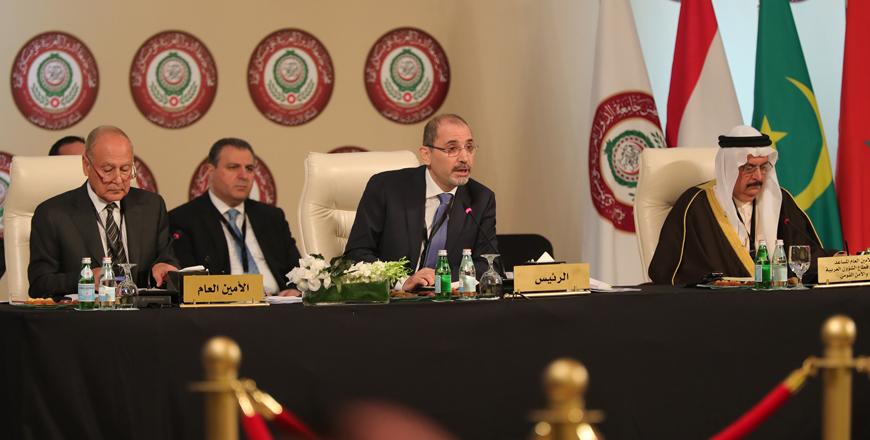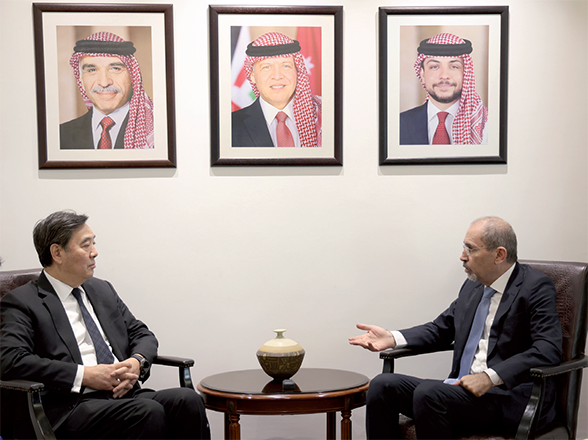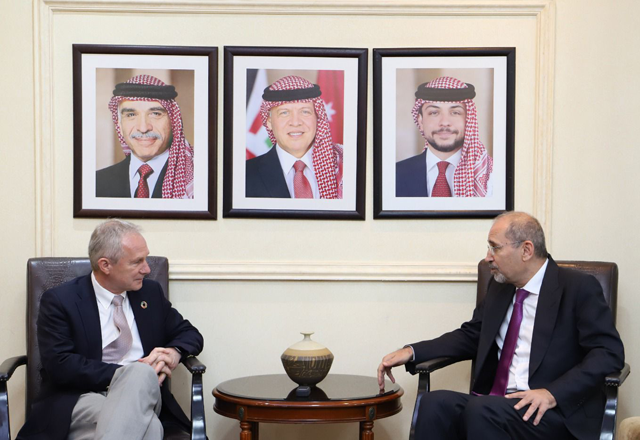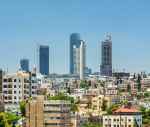You are here
Palestinian cause scores high on Arab summit agenda
By JT - Mar 28,2017 - Last updated at Mar 28,2017
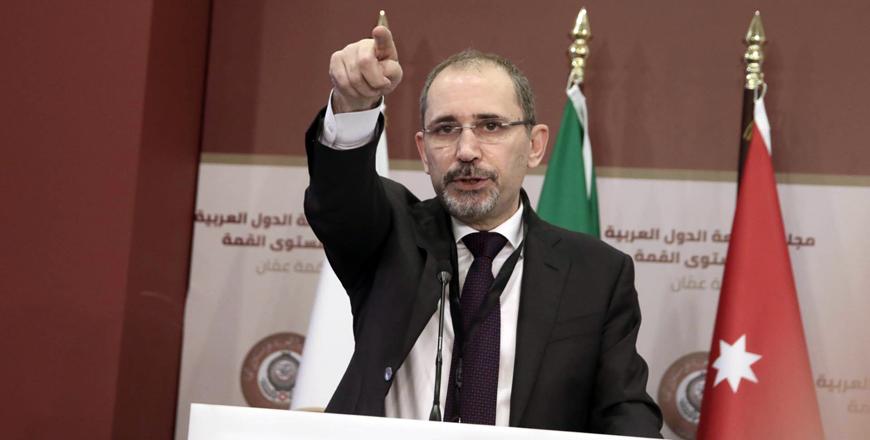
Foreign Minister Ayman Safadi speaks to reportes at the Dead Sea on Monday (Photo by Osama Aqarbeh)
DEAD SEA — Concerns over the regional situation and its impact on Arab people dominated Arab officials’ speeches at the opening session of Monday’s foreign ministers’ preparatory meeting.
Foreign Minister Ayman Safadi, who received presidency from his Mauritanian counterpart Isselkou Ould Ahmed Izid Bih, underlined the “difficult time” the Arab nation is going through, calling for efforts to restore the region’s security and stability so that governments would be able to address the needs of their peoples in terms of development, education, labour and hope.
For many years, the Arab-regional system has not been able to resolve regional issues, Safadi stressed, noting that people’s trust in the effectiveness of collective Arab action has faded away.
But he expressed hope in the joint Arab action, led by Jordan as the president of this year’s summit, to overcome challenges and build a better future that provides a decent and productive life to Arabs.
In remarks to the media later in the day, Safadi commended the well-coordinated work achieved by Arab foreign ministers, which, he said, would advance Arab states’ ability to overcome great challenges.
For his part, Arab League Secretary General Ahmed Aboul Gheit noted that the concerns of Arabs today are “justifiable” in light of what the region is witnessing.
“Arab individuals from all countries are sensing the wounds of their brothers living in crises zones... They are hostages of fear and panic, and subject of killing and displacement,” he said.
Yet, he pointed out that the encouraging fact is that “the hearts of Arabs” were still alive, citing the way Arab countries accommodated refugees as “a healthy sign… amid the darkness”.
The official underlined the need to provide all means of support to countries who have hosted thousands of refugees, especially Jordan and Lebanon.
The foreign ministers reached consensus on several regional issues and came up with draft resolutions to be referred to Arab leaders for endorsement on Wednesday.
Most of the proposed decisions were related to the Palestinian cause.
Safadi underlined a resolution under which Arabs reject any unilateral decisions affecting the status quo of Jerusalem, in the light of recent US officials’ intention to relocate the embassy from Tel Aviv to Jerusalem.
Meanwhile, activists seized the opportunity of the event to make their voice heard at the high-profile meeting.
Women’s rights advocates expressed their hope to see Arab leaders adopt measures that would safeguard their rights and those of female refugees in the region.
Women organisations such as Arab Women Organisation and Sisterhood Is Global Institute urged the leaders to come up with resolutions that ensure Arab women are treated as full citizens enjoying all the rights they are entitled to.
Related Articles
DEAD SEA — The foreign ministers’ preparatory meeting for the 28th Arab summit opened on Monday amidst a regional outlook that requires Arab
AMMAN — Deputy Prime Minister and Foreign Minister Ayman Safadi on Monday met with China's Special Envoy to the Middle East Zhai Jun to disc
AMMAN — Deputy Prime Minister and Foreign Minister Ayman Safadi on Tuesday received President of the United Nations General Assembly Csaba K


